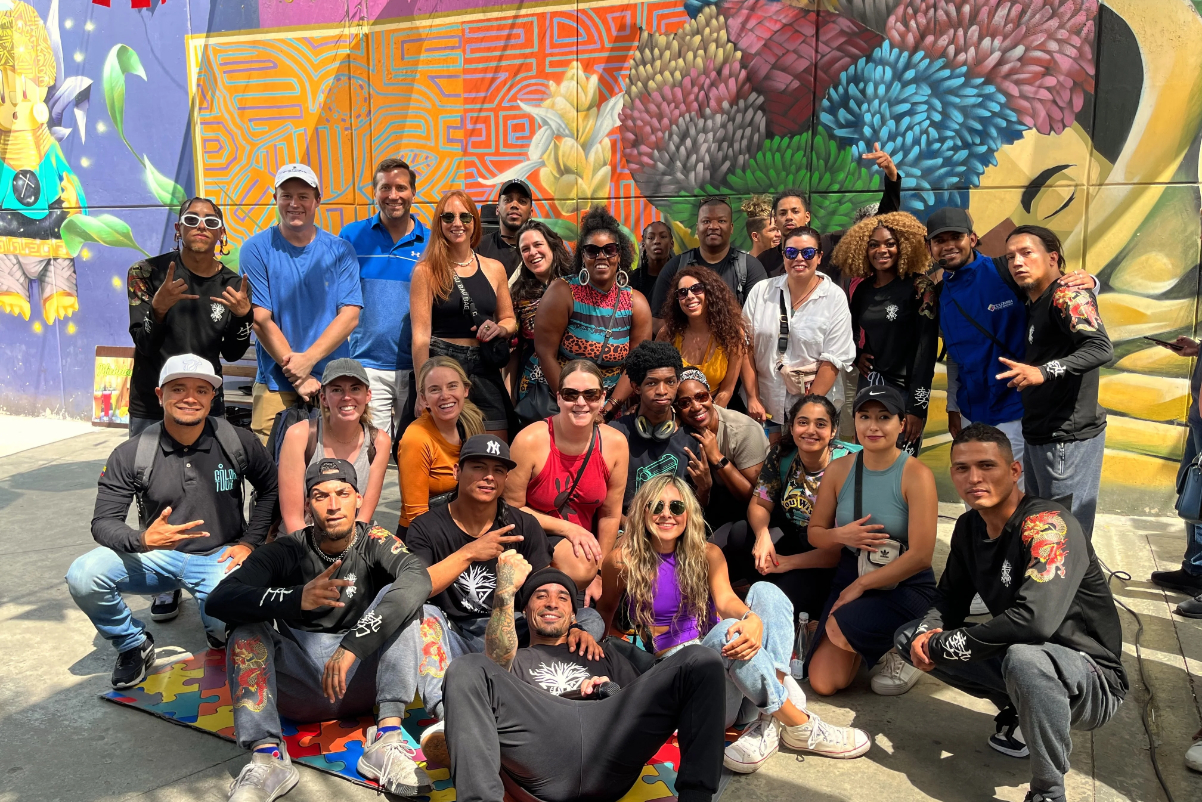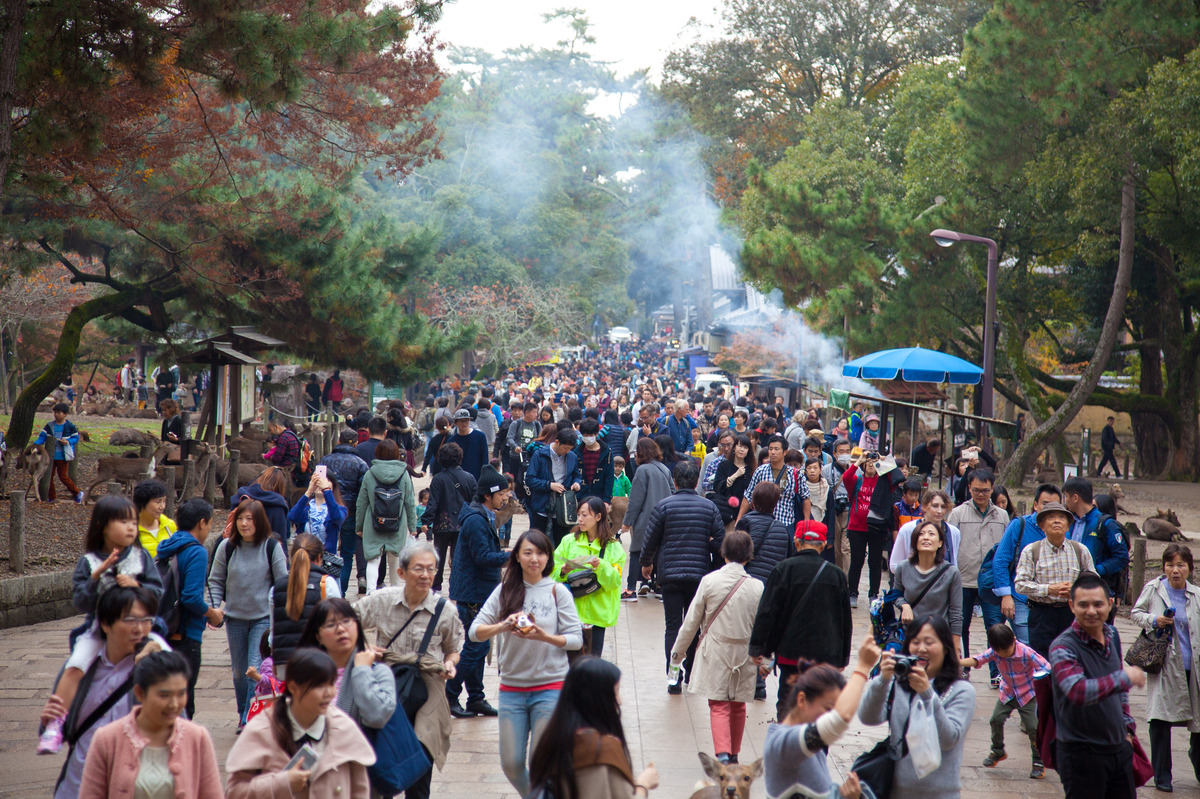How Hotel Tech Can Capture the Hearts of Millennial and Gen Z Travelers
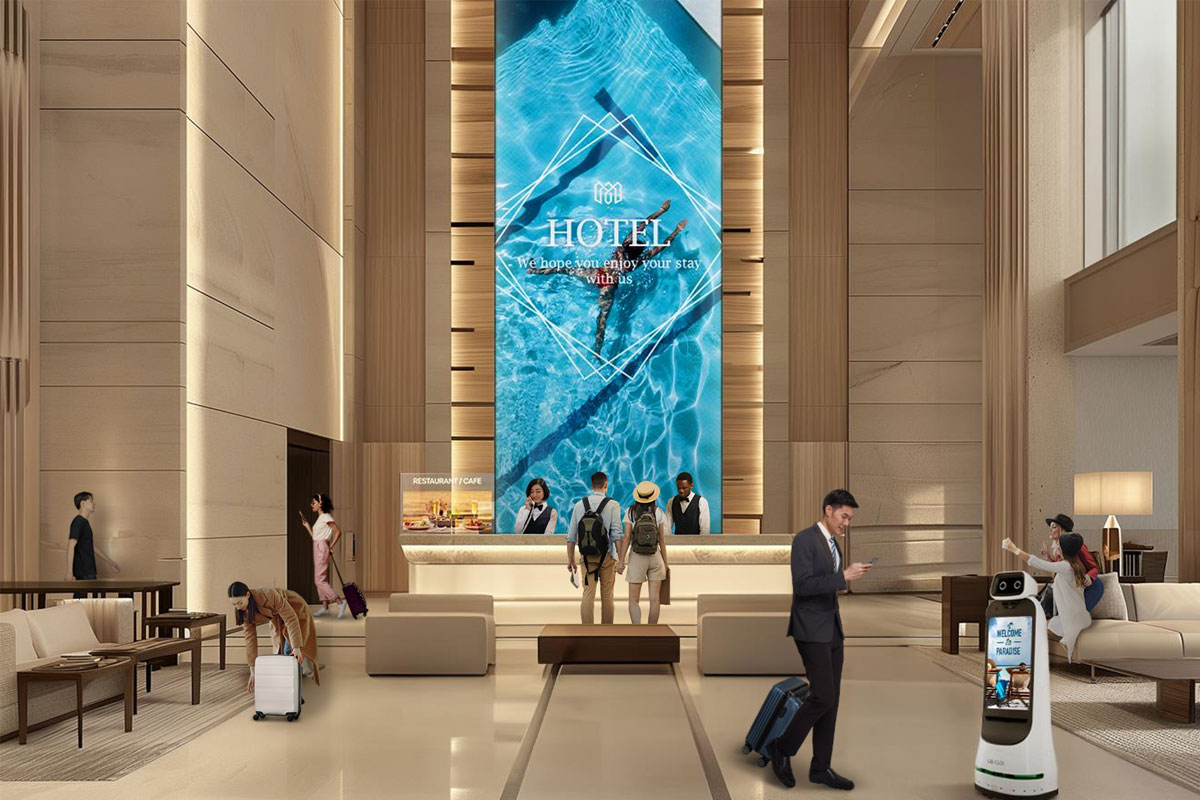
Skift Take
This sponsored content was created in collaboration with a Skift partner.
Millennial and Gen Z travelers are reshaping the hospitality industry. According to Skift Research, most travelers in these generations plan to increase their travel spending in the next year, and more than 75 percent will take two or more trips in that time frame.
Meanwhile, about two-thirds of these travelers said that hotels are their number one preference for accommodations, far outpacing short-term rentals and staying with family and friends, underscoring the importance of hotels’ strategies to attract them.
Alongside these behaviors, younger travelers are stress-testing hotels’ ability to keep up with customer preferences for technology. During the 2024 Skift Data & AI Summit, Chris Hemmeter, managing director of Thayer Ventures, said:
“We find ourselves now with incredible technical debt, and it’s a real problem because the traveler has changed at the same time that our industry has been sort of playing catch up and layering technology on top of itself.”
Given these monumental, rapid shifts, hotel owners and operators must understand the unique demands of their specific customers and implement creative features and amenities, like those offered by LG Business Solutions, to help them compete in an ever-changing travel technology landscape.
3 Critical Ways Millennials and Gen Z Are Reshaping the Hotel Industry
1. Share of the travel market: Millennials and Gen Z are projected to account for 83 percent of hotel guests by 2030, according to an LG Business Solutions report.
2. Frequency of travel: Millennials and Gen Z are also the most “frequent” leisure travelers, more likely than Gen X or Baby Boomers to take three or more trips per year.
3. Massive spending power: In particular, Gen Z is quickly becoming a critical consumer base for the hotel industry — it is the largest generation in global history, and its spending power is expected to reach $12 trillion by 2030.
4 Key Expectations Travelers Have for Their Hotel Stays
1. Self-service experiences: According to a report from Skift and Oracle Hospitality, 75 percent of Millennials and Gen Z hotel guests agreed they would be “more likely to stay at a hotel offering self-service technology,“ compared to less than two-thirds of Gen X and Baby Boomer hotel guests.
2. Environmentally-conscious amenities: 82 percent of Millennials and Gen Z are interested in minimizing their environmental impact while traveling.
3. A place to mix business with pleasure: Nearly 75 percent of Millennials and Gen Z travelers said they extended their most recent business trips for leisure purposes.
4. Unique photo opportunities: 61 percent of Gen Z and Millennials agreed that visiting a destination because it looks great in photos and videos was a top motivation for traveling in 2023, compared to 49 percent of respondents overall.
4 Ways Hoteliers Can Meet These Modern Preferences With Technology
1. Make business travel more fun: When the work is done and it’s time to transition to leisure, the latest display technologies can deliver a next-level guest entertainment experience inside and outside. After a long day of work, hotels may offer guests the opportunity to enjoy their own content on their own streaming platform using Airplay casting on a 4K UHD Hotel TV in their room.
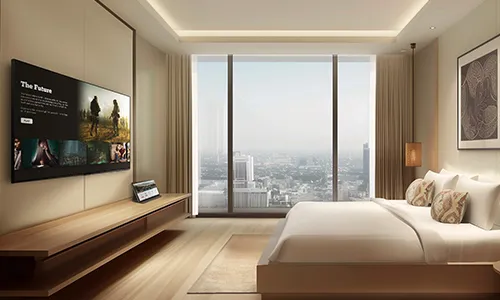
2. Build social (media) capital: Create “Instagrammable” photo zones with a Kinetic LED information display that blends movement, content, and sound. This provides an immersive presence that seamlessly combines technology with art, creating opportunities for social sharing that perform better than any marketing a hotel can generate on its own.
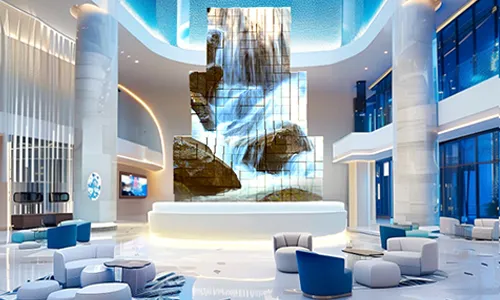
3. Surprise and delight: Offer contactless, wait-free service with service robots that can deliver amenities, food, or other items a guest may need at a moment’s notice, at any time of day, with the added benefit of maintaining privacy if desired.
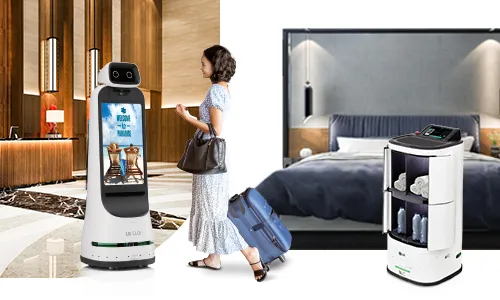
4. Illuminate the eco-conscious: Set up electric vehicle charging stations to serve the growing fleet of EVs and add value for environmentally mindful Millennial and Gen Z travelers. PwC’s 2024 Voice of Consumer Survey revealed that consumers are willing to pay an average of 9.7 percent more for sustainable goods. Hotels equipped with highly ranked products such as energy-efficient digital signage displays, monitors, TVs, and HVAC may also appeal to eco-conscious travelers.
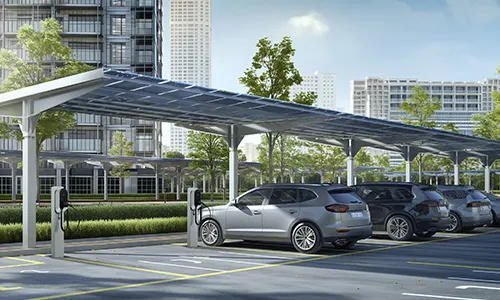
“Generation Z is going to be our main source market in the next five, 10 years. And they think differently, they communicate differently,” Sanovnik Destang, executive director of Bay Gardens Resorts in Saint Lucia, told Skift in an interview about evolving technology to meet the needs of the next generation. By attuning themselves to Millennial and Gen Z travelers’ sensibilities and implementing forward-thinking technologies that cater to these preferences, hoteliers will set themselves up to compete for the next decade and beyond.
Find out more about how LG Business Solutions can elevate your hotel experience.
This content was created collaboratively by LG Business Solutions and Skift’s branded content studio, SkiftX.

